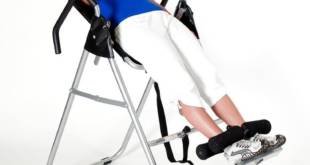A weight loss tracker, a food diary for instance is great for monitoring your weight loss but it’s also an easy way to help you maintain your new weight.
A food diary is essential for planning and sticking to your diet but most dieters when they hit their target stop keeping one.
Tracking your weight loss in this way is a great discipline. When you write something down, you’re much more likely to carry it through.
Some of our clients are hopeless at starting and maintaining a weight loss tracker. If they do start one, it often lasts barely a week.
So…
Why Keep a Weight Loss Tracker…?
Simple, a food diary helps you to plan what you’ll eat, whether for the day or the week ahead.
Trust us, without one you won’t have a clue what to eat. Failing to plan is planning to fail!
A weight loss tracker also enables you to record everything you eat. Any problems along the way can often be tracked back to a particular meal, a bad day or bad few days and adjustments can be made to your programme.
A weight loss tracker also helps you to identify your eating habits and patterns.
I’ve had countless conversations with clients who’ve had a bad week and not lost any weight or put on a pound or two.
If they’ve kept an honest record of their food and drink intake it’s easy to see where they’ve gone wrong and to fix it.
If they’re relying on memeory…can you remember what you ate yesterday, last weekend?
Can you remember what time you ate, how many meals you had, how many glasses of water you drank, how you felt when you ate?
Probably not, I can’t!
In our experience, practically all the clients we’ve worked with have kept a diary. Intermittently in some cases, but they get there in the end with a bit of nagging.
However, most of them stop once they’re down to their target weight. Why is that?
The discipline of maintaining your new weight, your new eating habits is the same as when you’re losing weight.
Now, we’re not saying that you have to keep a food diary forever. Once you’re at your target weight, we would suggest you keep one for at least a month.
You’ll be gradually increasing your food intake and you’ll need to plan that.
It takes as long for your body to get used to its new weight as it took to lose the weight in the first place.
In other words, your body is like a stretched spring and will try to get back to its former shape as soon as possible.
A weight loss tracker helps you to plan your next day’s food intake and reinforce those positive eating habits you’ve managed to instil during the difficult first few weeks at your target weight.
As your new eating habits become second nature, you can ditch the food diary if you like.
Having said that, a few former clients still keep a food diary years after having hit their target weight and swear it’s what’s kept them on the straight and narrow!
How do You Keep a Food Diary…?
Firstly, make the time. Sit down with a paper diary, a calendar, an online calendar (Microsoft Outlook is good), a personal organizer, palmtop, the latest diet software, whatever suits you best.
You’re busy? What, no time to keep a diary?
What do you mean by that? You’ve time to make a shopping list, a to-do list, to watch TV. Surely you’ve time to keep a food diary?
It’s time to spend on yourself. Because your weight management is important, you’re important…make the time!
Don’t wait until you’re about to eat your first meal of the day before doing it. Plan tomorrow’s food intake and write it down the night before.
People often make the mistake of recording what they just ate rather than planning what they will eat.
The former is fine when you’re getting started on a weight loss programmer as it helps identify eating habits, problem areas and so on.
A Weight Loss Tracker Helps In Planning The Maintenance of your weight:
A weight loss tracker for weight maintenance is a planning tool.
Write down exactly what you’re going to eat. The exact food, quantity, portion size as well as the time you’ll eat it. For example:
- 7 am Breakfast – Porridge with soya milk, 1 low fat yogurt, 1 banana, 1 glass of water
- 10am Mid-morning snack – tub of non-fat cottage cheese, 2 sticks of celery, 1 glass of water
- 12:30 Lunch – 1 cooked chicken breast, salad, non-fat thousand island dressing, 6 cherry tomatoes, 1 apple, 1 glass of water
…And so on. Also include snacks, drinks, extras like alcoholic drinks and other junk foods. This tracking will help you to understand what you are consuming. So, don’t forget track things that you are eating.
Then make sure you build a list of foods that only help in weight loss. After doing this, eat what’s in your food diary for the day…and only what’s in your diary!
Be disciplined and do not deviate. A common problem for people who’ve lost weight is slipping back into old eating habits and self-destructive patterns.
What Could Happen If You Ditch Your Tracking Diary?
We had a client called Karen who had a passion for pastries mid-morning with a coffee. She had a bakers near to her office. She weaned herself off them when losing weight and kept a food diary.
She ditched her weight loss tracker when she hit her target weight and within days was back on the coffee and pastries!
You’re taking responsibility by writing down what you’ll eat. You’re taking responsibility and being accountable.
Feeling tempted by something naughty? Refer to your plan and eat only what you’ve planned to eat.
It’s easy to eat healthily when you’re happy and relaxed. It’s much harder when you’re busy and stressed. A hectic day at the office, ferrying the kids to school and after school activities…
You can cope with missed meals and no time to pop out and get a salad at lunchtime if you plan ahead. Ask yourself:
- Where will I be?
- What will I have time to eat?
- What will I feel like eating?
- Will I get stuck in traffic? A meeting?
- Will I have time to go out and get something or do I need to take something with me?
- Have I got time to cook?
- Do I need to prepare a healthy evening meal in advance?
…And so on. Planning ahead like this is the key to success or failure. It helps you to make planning and eating healthily automatic.
After a few weeks you’ll be on autopilot, effortlessly combining your busy schedule with your weight management regime.
Your weight loss tracker will become an indispensable weight maintenance tool.
Providing a definite plan to get you through the tough times and banishing your ad hoc eating habits that would otherwise sidetrack your healthy eating regime.
Wrapping It Up
Planning is the key to success, to help you make the right food choices and take control of your eating so you can stay slim forever.
If you want to make keeping a weight loss tracker easy and save having to write things down, work out your calorie intake, store your recipes and meal plans on scraps of paper that keep getting lost…
Then you may want to check out this diet software reviews and turn your PC, laptop or in some cases your palm top or mobile phone, into your own personal nutrition counselor!
However you decide to do it, remember… A weight loss tracker is not just for weight loss, it’s for weight maintenance too!
 Weight Loss for Busy People Best Fitness Blog
Weight Loss for Busy People Best Fitness Blog


